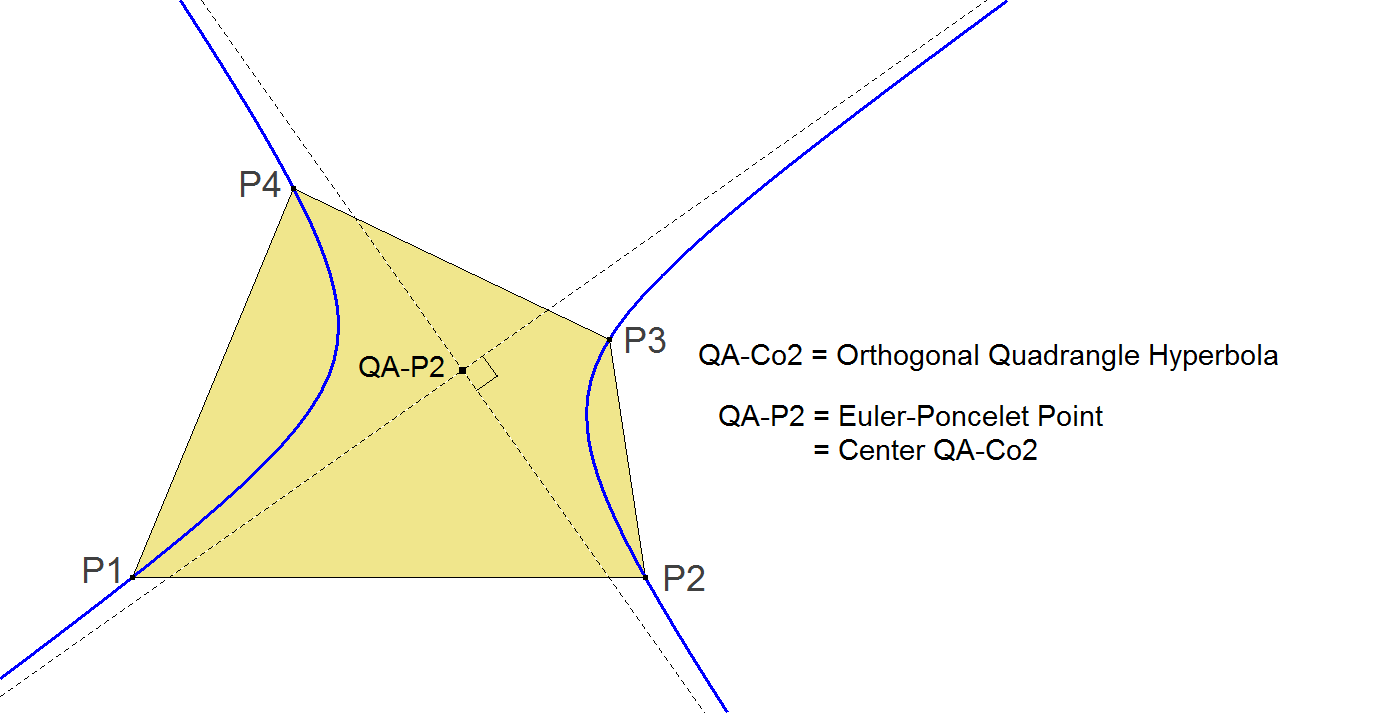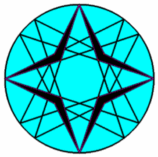QA-Co2: QA-Orthogonal Hyperbola
Since an Orthogonal Hyperbola (OH) is determined by 4 points there is only one Orthogonal Hyperbola defined by the vertices of a quadrangle.
QA-Co2 is the unique Orthogonal Hyperbola defined by the vertices of the reference quadrangle.

Equation CT-notation:
(SA x – SB y) p q z + (SB y – SC z) q r x + (SC z – SA x) p r y = 0
Equation DT-notation:
(b2 r2 – c2 q2) x2 + (c2 p2 – a2 r2) y2 – (b2 p2 – a2 q2) z2 = 0
Properties
- The orthocenters of all QA-Component Triangles lie on this hyperbola.
- QA-P2 (Euler-Poncelet Point) is the center of the QA-Orthogonal Hyperbola.
- The asymptotes of the QA-Orthogonal Hyperbola are parallel to:
- The incenter and the excenters of the QA-Diagonal Triangle (QA-Tr1) lie on QA-Co2. This property can be found at [36] page 347, as well as at [28] page 100, theorem 4.2. See also [11], Hyacinthos message # 21130 of Floor van Lamoen.
- The QA-Diagonal Triangle (QA-Tr1) is self-polar wrt QA-Co2.
- QA-P11.QA-P41 intersects QA-Co2 on QA-Cu1. See [34], Eckart Schmidt, QFG-message #1666.
- The vertices of the anticevian triangle (wrt QA-Tr1) of any point of QA-Co2 also will be resident on QA-Co1. See [34], Eckart Schmidt, QFG-message #1666.
- Let P be on QA-Co2 and X, Y its reflections in PiPj and PkPl, then the circumcircles of XPiPj and YPkPl intersect in the reflection of P in QA-P2. See [34], Eckart Schmidt, QFG-message #1666.
Estimated human page views: 743
